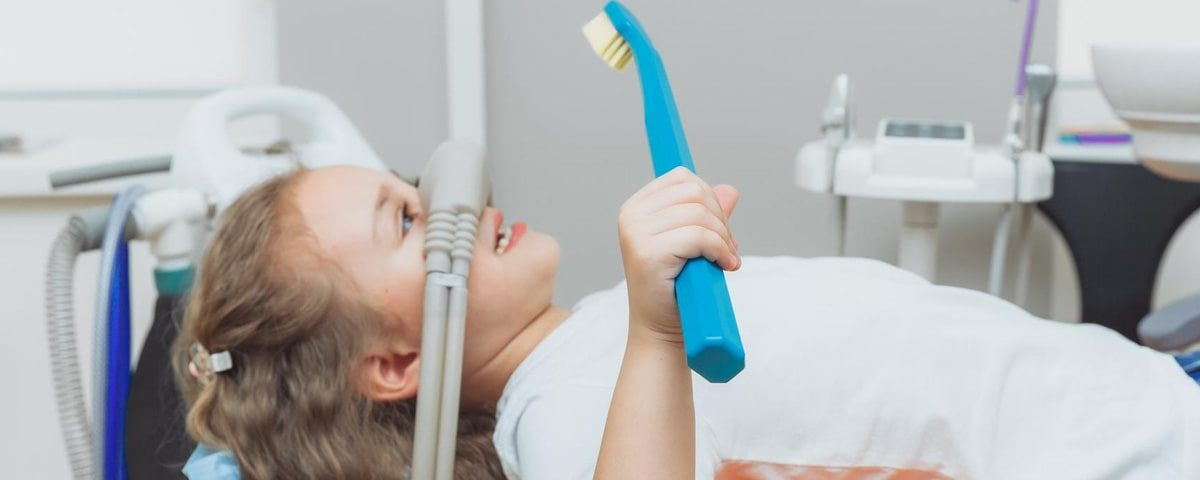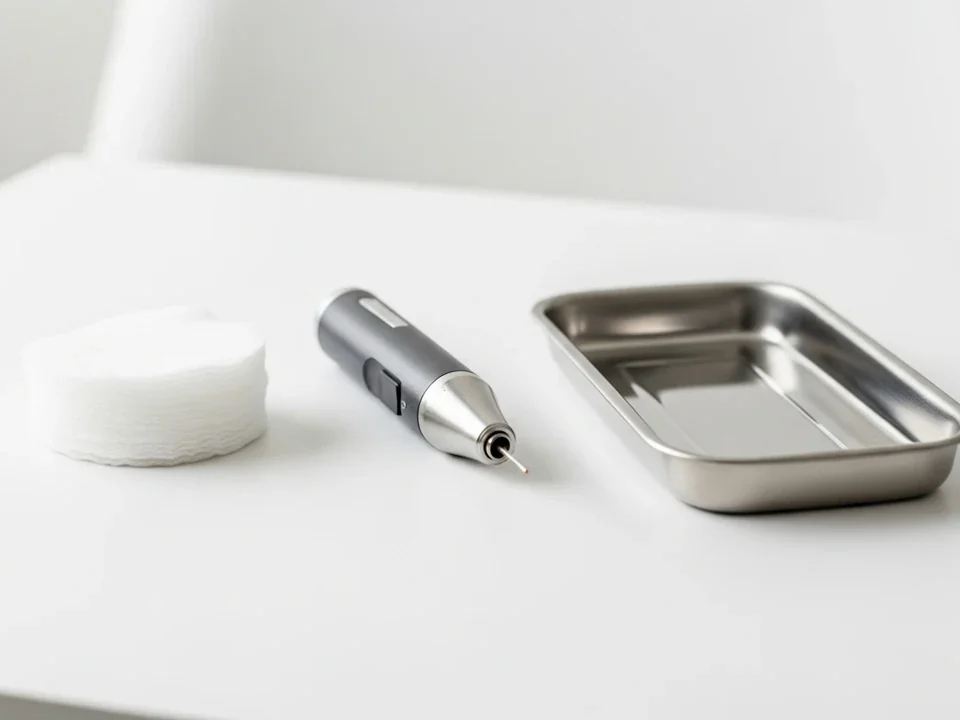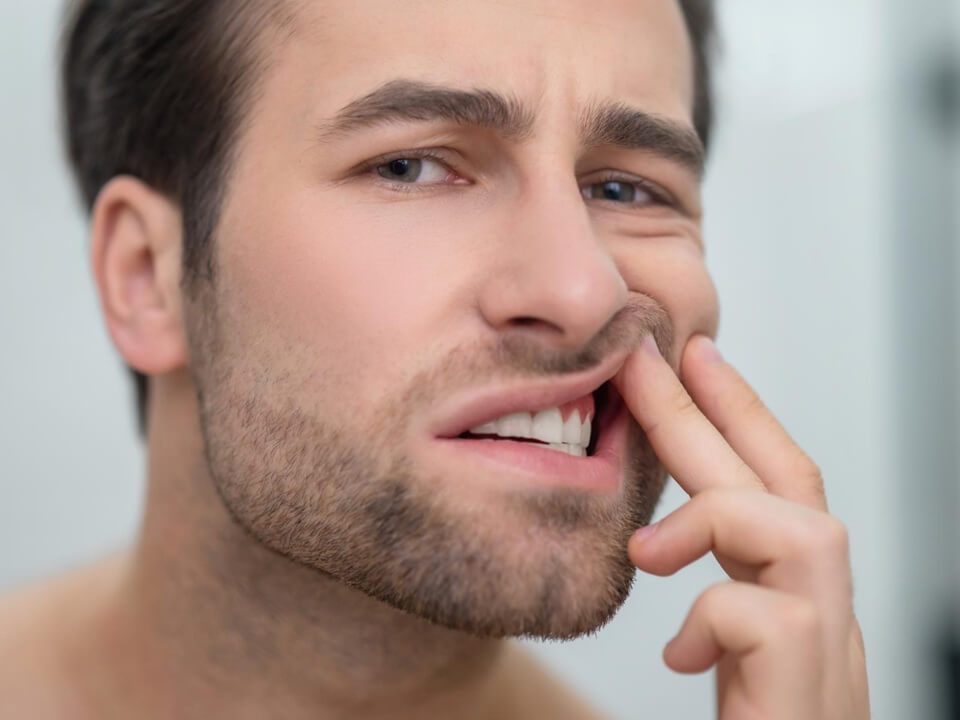
9 Types of Cosmetic Dentist Services
November 28, 2024
Frequently Asked Questions About Eating with Invisalign
December 19, 2024If the thought of sitting in the dentist’s chair sends your heart racing, you’re not alone. Dental anxiety affects many people. But sedation dentistry can help. Sedation for dental anxiety makes dental visits less stressful, calms your nerves, and allows you to focus on getting the care you need without fear. Let’s find out how sedation works and how it can help ease dental anxiety.
Table of Contents
ToggleCan Sedation Help with Anxiety?
Yes, sedation for dental anxiety is a game changer. It takes that anxiety away by helping you relax during procedures, whether it’s the sound of the drill, the fear of pain, or just the stress of being in the chair. Sedation works by calming the central nervous system, reducing stress, and blocking pain. There are different types of sedation. Your dentist helps you choose the best one for you.
How Does Sedation Dentistry Work?
Sedation dentistry in Arizona involves using medication to relax patients. Your dentist chooses the right sedation for dental anxiety based on your stress level. Here’s a detailed breakdown of how sedation works on both the body and mind:
Nitrous Oxide (Laughing Gas)
You breathe this gas through a mask. It quickly relaxes you and makes you feel calm, even happy. It doesn’t put you to sleep, but it eases your anxiety. Once the mask is removed, the effect wears off fast. You can drive home right after your procedure.
Oral Sedation
You take a pill about an hour before your appointment. It helps you relax deeply. You might feel sleepy, drowsy, or a little out of it during the procedure. The effects can last for a few hours. You’ll need someone to drive you home afterward.
IV Sedation
This is given through an IV directly into your bloodstream. It works fast to relax you, and you may even fall asleep. The dentist can adjust the level of sedation during the procedure. It may take a few hours to fully wear off, and you’ll need someone to take you home.
General Anesthesia
This is for more complex procedures. It puts you into a deep sleep. You won’t feel anything, and you won’t remember the procedure afterward. The effects last longer, so you’ll need someone to take care of you after the procedure.
What Are the Benefits of Sedation Dentistry?
Sedation for dental anxiety offers several key benefits beyond just stress reduction:
- Sedation blocks pain during complex procedures like root canals or extractions.
- Keeps you relaxed and allows the dentist to complete longer treatments in fewer visits.
- Helps calm the gag reflex and makes cleanings and fillings more comfortable.
- Sedation makes dental visits safer and easier for patients with special needs.
- Some sedatives help you forget the procedure and reduce future anxiety.
- Sedation allows multiple procedures to be done in one visit.
- Helps you stay still during delicate work, which minimizes errors.
- Sedation lets patients with anxiety undergo treatment without fear.
- Keeps you relaxed during lengthy treatments like full-mouth restorations.
- Sedation makes dental care less stressful for children by keeping them calm.
How Long Does Dental Sedation Stay in Your System?
Duration of sedation for dental anxiety depends on the type used, Here’s a breakdown of how long each sedation method typically stays in your system:
- Nitrous Oxide (Laughing Gas) wears off in 5–10 minutes. You can drive home immediately.
- Oral Sedation lasts 1–2 hours and fully leaves in 4–6 hours. You may feel groggy, so have a driver.
- IV Sedation effects last 1–2 hours, full recovery in 4–6 hours. You’ll need someone to drive you.
- General Anesthesia lasts 6–12 hours, recovery can take up to 24 hours.
What Can You Take for Anxiety Before Dental Work?
Aside from sedations for dental anxiety, you may wonder what you can do before your appointment to calm your nerves. Here are some options:
- Medications like Valium or Ativan may be prescribed for moderate anxiety. They help calm you down before your visit and make you feel more at ease.
- Natural remedies like chamomile tea or lavender may have a calming effect. However, they’re less strong and fast-acting than prescription medications.
- Deep breathing can help reduce anxiety. Try taking slow, deep breaths before your visit to calm your mind and body. It’s a simple and effective way to feel more in control.
What Is the Best Sedative for Dental Anxiety?
The best sedation for dental anxiety includes Nitrous Oxide (Laughing Gas). It works quickly to relax you and allows you to stay alert and communicate with your dentist. The effects wear off immediately after the procedure, so you can drive home without any lingering grogginess. It’s a safe, effective, and low-risk option for managing anxiety during dental visits.
The Best Sedation for Dental Anxiety Near Me
Sedation for dental anxiety could be the answer you’ve been looking for. At Atrium Dental, we make sure our patients feel calm and cared for during every appointment. Whether you need a routine cleaning or a more complex procedure, we’re here to help you through it. Don’t let fear keep you from the dental care you need. Contact us today to learn more about how sedation dentistry can help you feel relaxed. Click here to schedule your appointment, or call us at (480) 940-4321.
Conclusion
Sedation for dental anxiety is an effective way to manage all the stress patients go through. It allows you to feel calm and relaxed regardless of the procedure. With the right sedation method, you can put your worries behind you and focus on getting the care your smile deserves.
FAQs
Yes, anesthesia helps block pain and reduce anxiety by relaxing the mind and body.
Sedation affects the brain, reducing stress and anxiety. It also dulls pain, making it easier to relax during the procedure.
Dentists can offer various solutions, including sedation, relaxation techniques, and calming environments. They can also discuss other treatments like therapy or mindfulness if needed.



